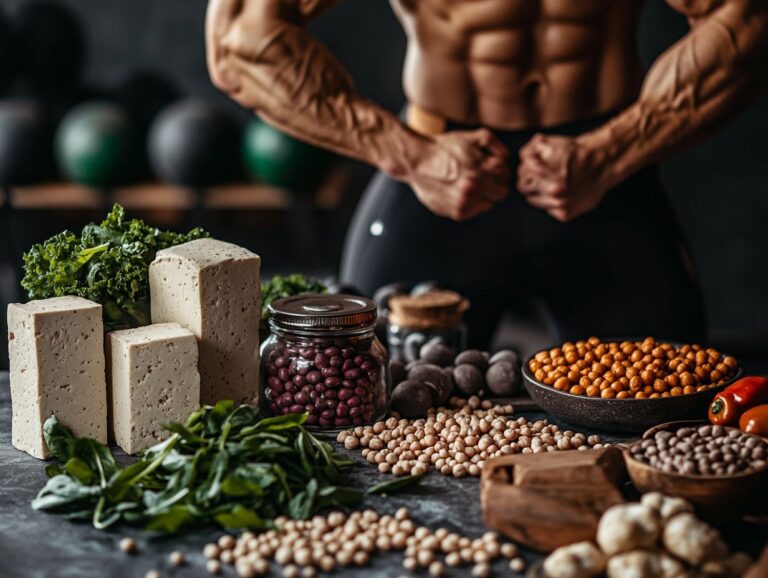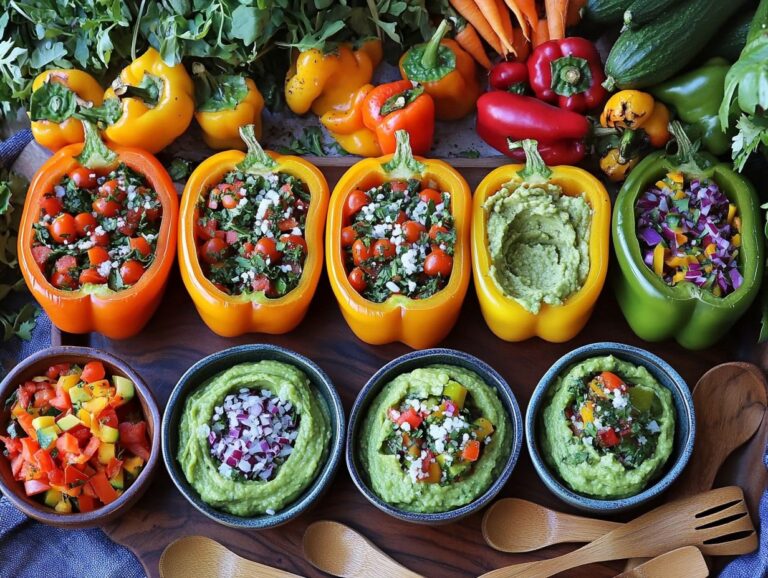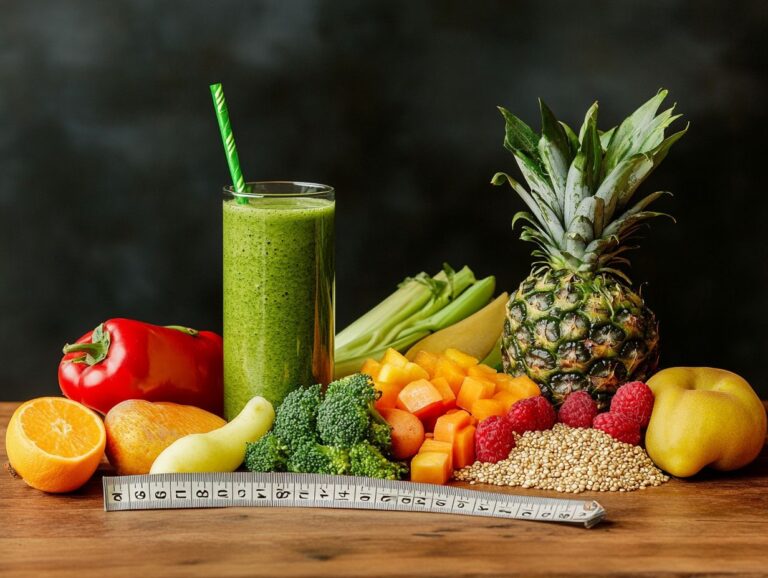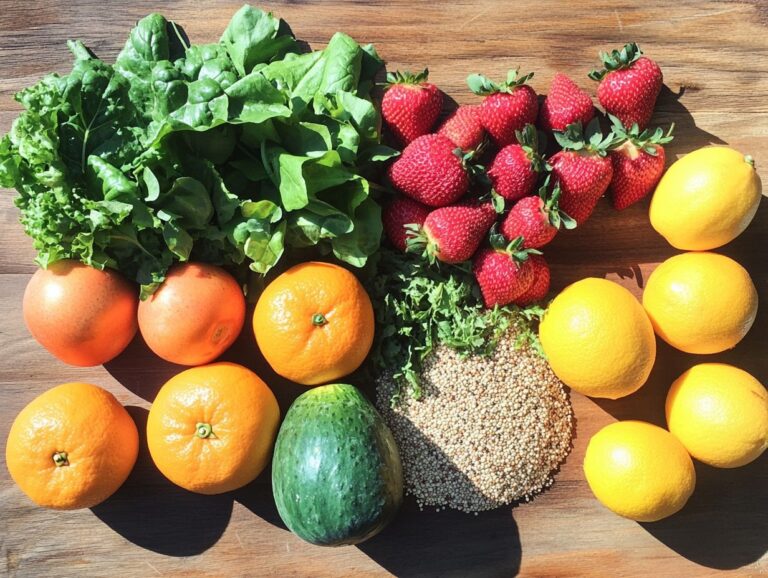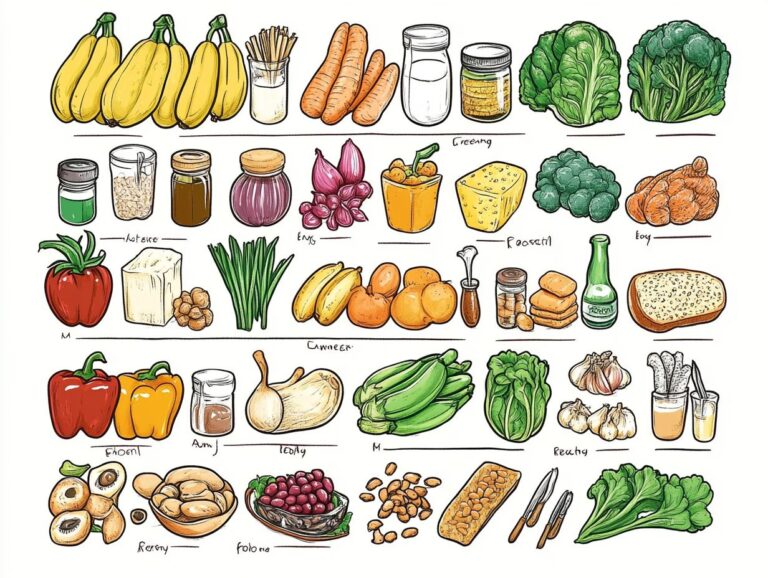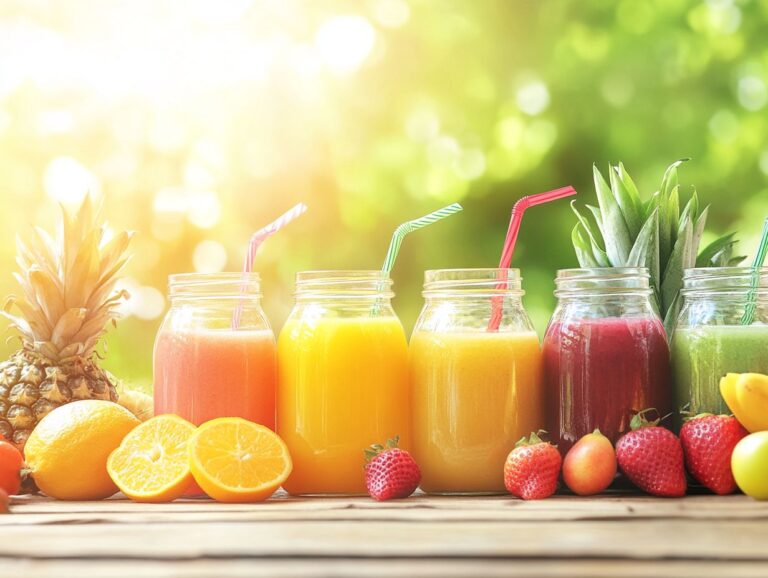This article explores the components of a balanced vegan diet that provides sufficient protein. It begins with an overview of what constitutes a vegan diet and highlights the importance of amino acids. The article distinguishes between essential and non-essential amino acids and emphasizes the significance of protein in overall health. It also outlines various plant-based sources and effective combinations necessary to meet protein requirements for thriving on a vegan diet. Additionally, the article lists the best vegan protein sources and addresses the health risks associated with inadequate protein intake, such as protein deficiency.
What Is a Vegan Diet?
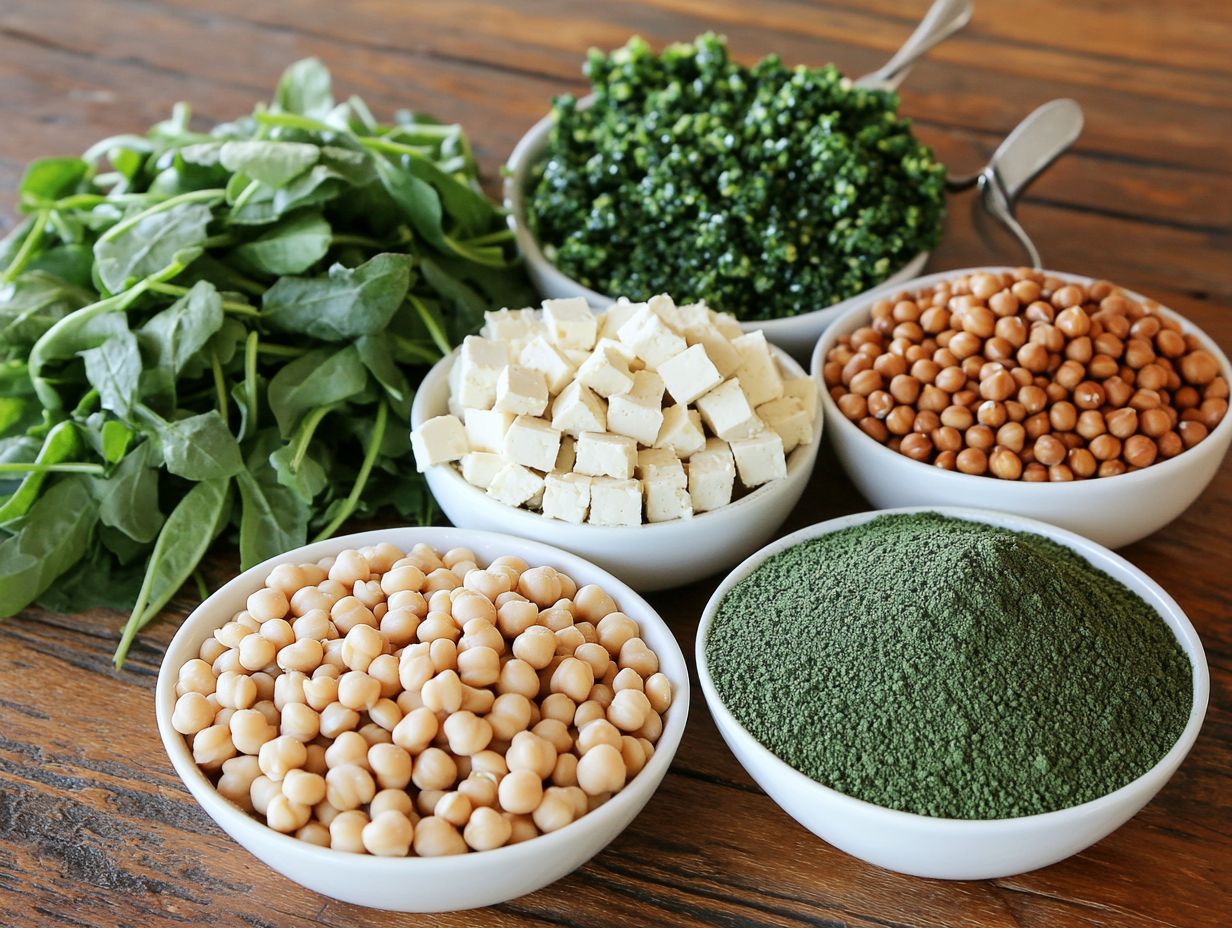
Vegan diets consist exclusively of plant-based foods and exclude all animal products, including meat, dairy, and eggs. This dietary choice is often motivated by ethical concerns regarding animal welfare, environmental sustainability, and health benefits, as highlighted by nutrition guidelines.
Vegan diets are typically categorized as whole-food plant-based diets, which emphasize the consumption of foods that retain all essential micronutrients, such as vitamins and minerals, along with macronutrients like protein.
When well-planned and adequately followed, whole-food plant-based vegan diets are considered sufficient not only for meeting protein requirements but also for fulfilling the body’s essential needs for all vital vitamins and minerals, including nutrients like vitamin D, vitamin B12, and zinc.
Courtney Davison, a registered dietitian and nutritionist based in Santa Monica, California, advocates for veganism. The World Health Organization and the U.S. government also support the adoption of plant-based diets as a means to improve health and reduce the risk of diseases such as obesity, type 2 diabetes, and cardiovascular disease.
What Are Amino Acids?
Amino acids are organic molecules that serve as the building blocks of proteins. They are essential for various bodily functions, including muscle growth, metabolism, and the production of hormones and neurotransmitters, as noted in protein studies.
There are 20 different amino acids, which are classified as either essential or non-essential. Essential amino acids cannot be produced by the body and must be obtained through dietary sources such as food or supplements. In contrast, non-essential amino acids can be synthesized by the body itself. Understanding the differences between these two types of amino acids is crucial for individuals following a vegan diet to ensure they meet their protein intake recommendations and maintain protein adequacy.
In the context of vegan diets, essential amino acids require special attention, as plant food sources may be deficient in one or more of these crucial amino acids. For instance, legumes are rich in lysine but low in methionine, which is abundant in grains. This highlights the importance of understanding protein quality and nutrient absorption when planning meals.
This is where a proper combination of plant proteins—such as beans and rice or nuts and seeds—can help provide a complete amino acid profile. By thoughtfully combining plant foods, individuals can achieve an optimum intake of all necessary nutrients, thereby promoting overall health, supporting muscle repair, and enhancing metabolic functions, as shown in dietary patterns studies.
What Are Essential Amino Acids?
Essential amino acids are those that the human body cannot synthesize and must be obtained through dietary sources, making them crucial for maintaining protein adequacy and overall health. These amino acids include histidine, isoleucine, leucine, lysine, methionine, phenylalanine, threonine, tryptophan, and valine, which are important for protein and health.
For individuals following a vegan diet, it is vital to include sufficient protein sources that provide all essential amino acids to prevent potential protein deficiency and support optimal health, especially for vegan athletes.
Understanding the roles of these amino acids is important; for instance, leucine is key for muscle repair, while lysine aids in calcium absorption and hormone production. This knowledge aids in protein consumption patterns and can help avoid protein-related diseases.
In a plant-based diet, diversifying protein intake is necessary, as some sources may be lacking in one or more essential amino acids. Legumes, such as lentils and chickpeas, are excellent choices because they provide lysine and other amino acids. Quinoa and tofu are also highly regarded for their complete protein profiles, contributing to overall nutrient intake.
By incorporating a variety of these foods, individuals can effectively meet their amino acid needs and promote better health and fitness.
What Are Non-Essential Amino Acids?
Non-essential amino acids are amino acids that the body can produce on its own. They play a crucial role in protein synthesis and are involved in many metabolic processes, contributing to protein sufficiency.
Unlike essential amino acids, non-essential amino acids do not need to be obtained directly from food, although a balanced dietary protein intake can support their production and overall health. While the body’s ability to synthesize these amino acids generally minimizes the risk of deficiency, following a well-rounded vegan diet that includes a variety of protein sources can help ensure optimal health and reduce potential health risks, as discussed in protein intake adequacy studies.
In a vegan dietary pattern, individuals can benefit from non-essential amino acids found in plant-based proteins such as quinoa, legumes, and nuts. Incorporating a healthy mix of these sources promotes essential bodily functions, including immune response, stress management, and energy levels, supporting protein consumption rates.
Understanding the importance of non-essential amino acids can enable those following a vegan lifestyle to make informed nutritional choices that support their health goals, as recommended by the Journal of the Academy of Nutrition and Dietetics.
Why Is Protein Important in a Vegan Diet?
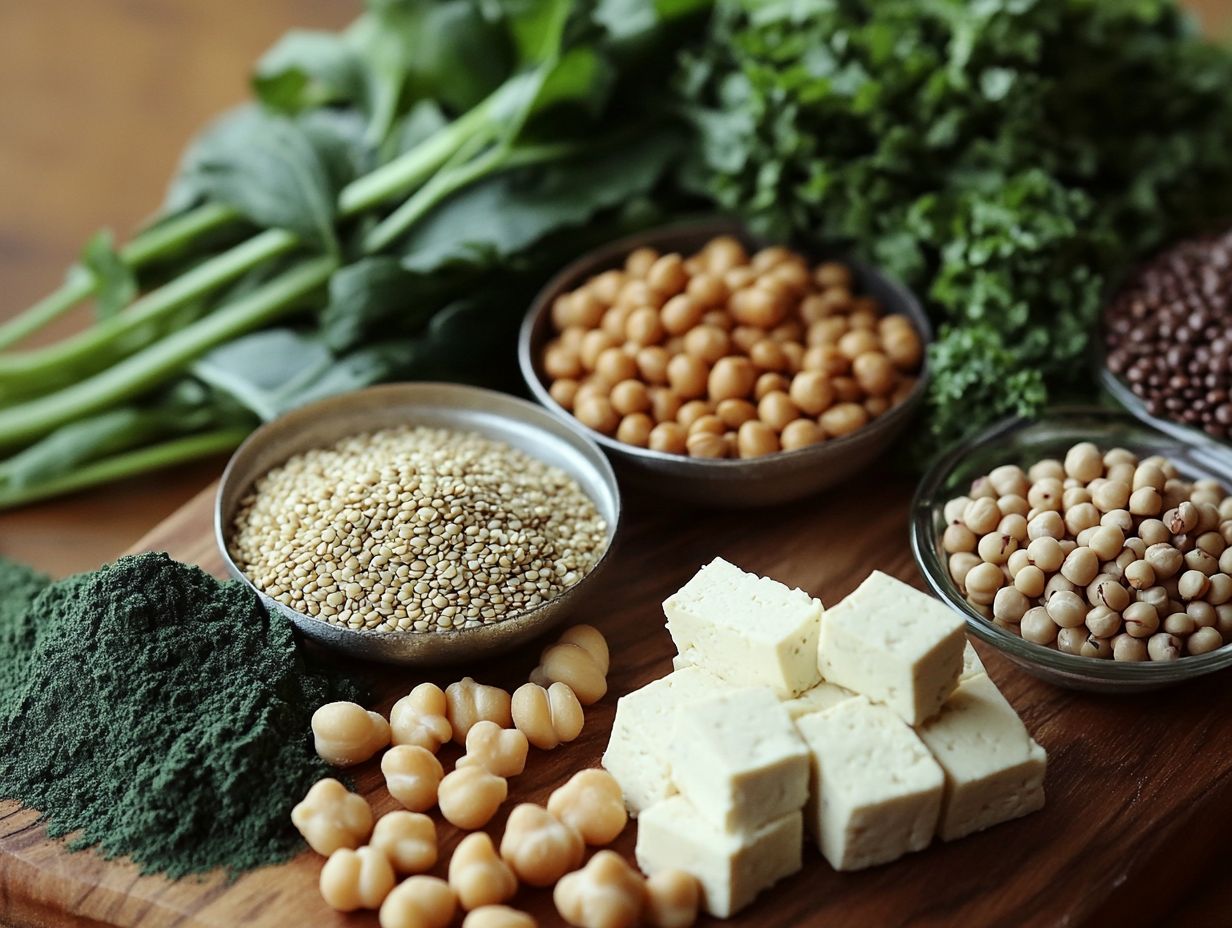
Protein is a crucial macronutrient that plays an essential role in building and repairing tissues, producing enzymes and hormones, and supporting overall bodily functions. This makes it particularly important for individuals following a vegan diet, as outlined in protein intake studies.
For those adhering to a plant-based lifestyle, understanding the variety of available protein sources is vital for achieving optimal nutrition. Unlike animal proteins, which are complete, some plant proteins may lack one or more essential amino acids. Therefore, incorporating a diverse range of high-quality plant foods, such as quinoa, tempeh, and edamame, is important to ensure the intake of all essential amino acids, supporting protein intake measurement and adequacy.
Additionally, combining different sources, such as beans with rice or peanut butter on whole-grain bread, can create complete protein profiles. This strategic approach not only helps meet protein requirements but also contributes to a well-rounded and nutrient-rich diet that promotes overall health and vitality, as seen in protein and aging research.
How to Meet Protein Needs on a Vegan Diet?
Meeting protein needs on a vegan diet necessitates careful planning and an understanding of diverse protein sources to ensure adequate protein intake. By recognizing various plant-based protein sources and incorporating a range of foods into their meals, individuals can effectively meet their daily protein requirements, aligning with protein recommendations from the American Journal of Clinical Nutrition.
Key strategies include consuming a mix of legumes, whole grains, nuts, and seeds, while also being mindful of the protein content in their meals to maintain optimal protein levels that support overall health and wellness, as emphasized in the documentary Forks Over Knives.
1. Eat a Variety of Protein Sources
A well-balanced vegan diet that includes a variety of protein sources is essential for overall health, as it ensures adequate intake of amino acids and nutrients. Incorporating a diverse range of protein-rich foods from different food groups—such as legumes, grains, nuts, and seeds—is vital for meeting protein intake recommendations and obtaining the other nutrients necessary for a balanced diet, as highlighted by vegan athletes like Robert Cheeke and Rich Roll.
Understanding the protein content of these foods and how various cooking methods affect protein availability can help establish and maintain a proper dietary pattern, leading to a healthier lifestyle and preventing protein myths.
To maximize nutrient density, it’s beneficial to incorporate legumes, grains, nuts, and seeds into every meal. For instance, legumes like:
- Lentils
- Chickpeas
- Peanuts
- Black beans
are excellent sources of protein and fiber, which aids digestion and promotes satiety. Quinoa is a complete protein grain, containing all nine essential amino acids, and serves as a versatile base for salads and bowls. Nuts, such as:
|||
are excellent sources of protein and fiber, which aids digestion and promotes satiety. Quinoa is a complete protein grain, containing all nine essential amino acids, and serves as a versatile base for salads and bowls. Nuts, such as:
- Lentils
- Chickpeas
- Peanuts
- Black beans
are excellent sources of protein and fiber, which aids digestion and promotes satiety. Quinoa is a complete protein grain, containing all nine essential amino acids, and serves as a versatile base for salads and bowls. Nuts, such as:
- Almonds
- Walnuts
- Pistachios
are rich in protein and healthy fats that contribute to heart health and aid in nutrient absorption. Meanwhile, seeds like:
- Chia
- Hemp
- Pumpkin
offer protein along with healthy fats and omega-3 fatty acids.
To easily include these protein sources in a daily diet, consider adding a spoonful of nut butter to smoothies, tossing a handful of chickpeas into salads, or substituting rice with quinoa in meals. Exploring new recipes can also facilitate the regular inclusion of these nutrient-dense foods in one’s diet, supporting diverse protein consumption patterns.
2. Incorporate Plant-Based Protein Supplements
Incorporating plant-based protein supplements can effectively boost protein intake for those following a vegan diet, particularly for athletes or individuals with higher protein requirements. Options such as pea protein, brown rice protein, and hemp protein offer concentrated sources of protein that can help meet daily intake goals, ensuring sufficient dietary proteins.
These supplements can be easily added to smoothies, oatmeal, or baked goods, providing a convenient way to enhance protein consumption without compromising dietary choices or energy intake.
Moreover, these protein sources not only contain essential amino acids necessary for muscle recovery and growth but also provide various health benefits, including improved digestive health and increased energy levels, supporting the findings of The Game Changers documentary.
For example, pea protein is rich in iron, making it an excellent option for those concerned about their iron intake, while hemp protein contains omega-3 fatty acids that are beneficial for heart health. These choices align with nutrition guidelines provided by experts like Garth Davis and Michelle McMacken.
It is important to be mindful of potential limitations, such as digestive sensitivity in some individuals or variations in protein quality among different types. To effectively integrate these supplements into a vegan diet, it is crucial to focus on balanced meals and maintain variety, ensuring that nutritional needs are met holistically.
3. Combine Incomplete Proteins
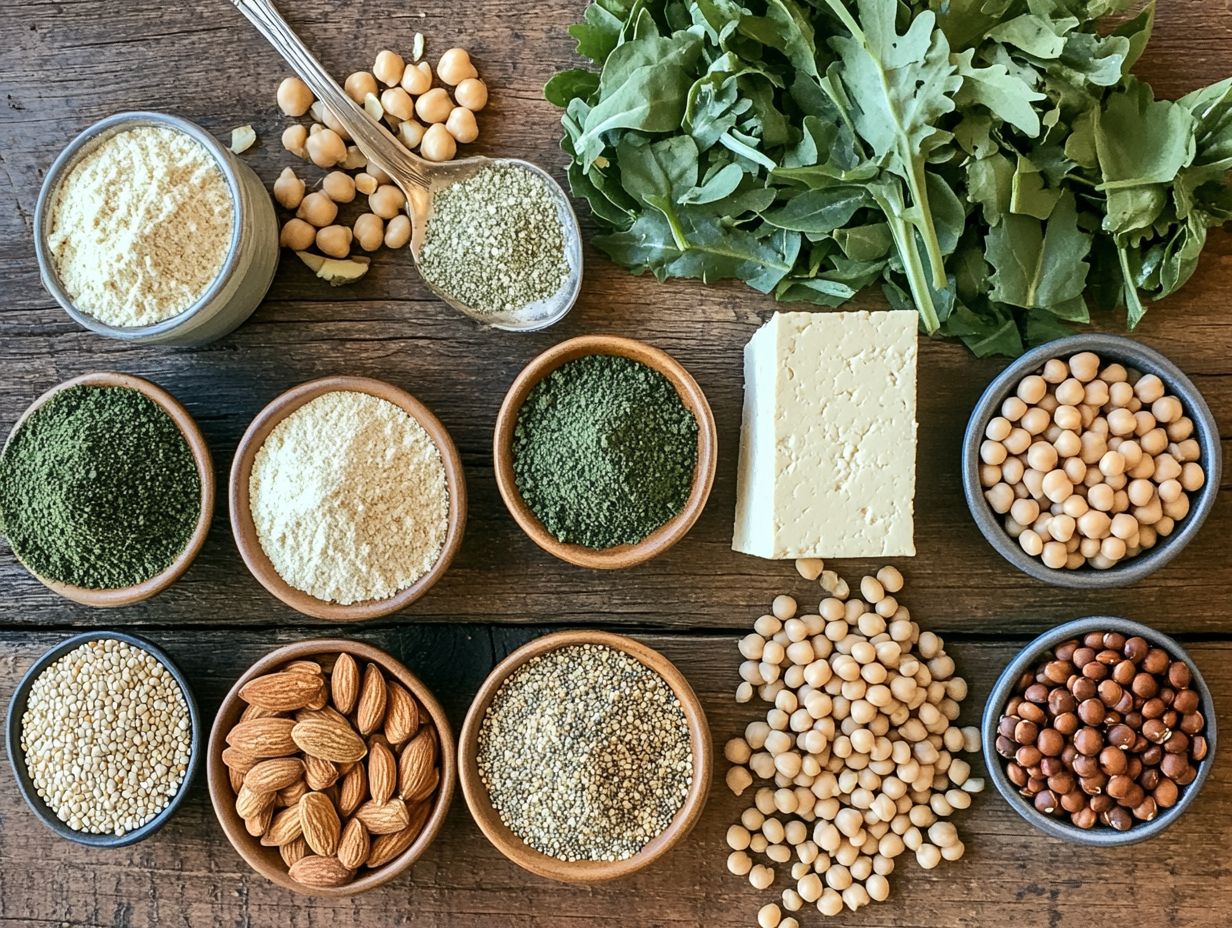
Combining incomplete proteins is essential for vegans to ensure they receive all the necessary amino acids for optimal health. Many plant-based protein sources, such as grains and legumes, often lack one or more essential amino acids.
However, by pairing complementary proteins—like rice with beans—individuals can achieve a complete amino acid profile. Incorporating combinations such as hummus with whole grain pita or a small amount of peanut butter on whole grain toast not only enhances the nutritional value of meals but also contributes to a feeling of satisfaction.
The significance of these combinations is particularly important for those following a vegan lifestyle, as they can aid in muscle repair and support overall health. Simple changes in the daily diet, such as adding lentils to a quinoa salad or mixing chickpeas into a vegetable stir-fry, can lead to a diet that is both delicious and nutritious.
Through this process of exploration and experimentation, anyone can broaden their dietary options while ensuring adequate protein intake recommendations are met.
4. Consume Protein-Rich Snacks
Snacking on protein-rich foods throughout the day can significantly help individuals meet their protein requirements in a vegan diet while also satisfying overall nutrient needs.
Examples of vegan-friendly protein sources include hummus with vegetables, nut butter spread on whole-grain bread, and edamame—these are all satisfying and nutritious snacks that can enhance protein intake.
By choosing snacks that are high in protein and low in unhealthy additives, individuals following a vegan diet can better structure their eating patterns and maintain energy levels throughout the day. It is essential for those with a plant-based lifestyle to experiment with a variety of tasty protein-rich snacks that promote satiety and support overall health.
Options like roasted chickpeas, hemp seed protein bars, or smoothies made with spinach and vegan protein powder can ensure adequate intake of all necessary amino acids throughout the day, aligning with nutrition guidelines.
These snacks can easily fit into busy schedules, whether packed for work, included in children’s school lunches, or consumed after workouts. By diversifying their snack choices, individuals can keep their diets interesting while ensuring they meet their daily protein needs.
What Are the Best Sources of Vegan Protein?
The best sources of vegan protein consist of a diverse array of plant-based foods that offer essential nutrients and promote health.
Foods such as legumes, nuts, seeds, grains, and soy products are rich in protein and enhance overall dietary quality.
By understanding the protein content in these sources, individuals following a vegan diet can optimize their nutrient absorption and ensure they meet their protein needs while enjoying a wide variety of delicious foods.
1. Legumes
Legumes, which include beans, lentils, and peas, are among the best sources of vegan protein. They are rich in protein and also provide significant amounts of fiber, vitamins, and minerals.
Incorporating legumes into one’s diet helps meet protein intake requirements while supporting digestive health. These versatile foods can be enjoyed in a variety of dishes, such as soups and salads. Regularly including legumes in one’s diet can enhance overall nutrient intake and offer numerous health benefits.
Different types of legumes bring unique flavors and nutrients; for instance, black beans are an excellent source of antioxidants, while chickpeas are rich in iron and folate.
Nutritionists often recommend incorporating these protein-rich options into meals like hearty stews or as a nutritious base for salads. Lentils, in particular, are great for adding protein and a hearty texture to curries.
This diverse range of legumes not only boosts protein intake in vegan diets but also promotes better overall health by supporting heart health and blood sugar control.
2. Nuts and Seeds
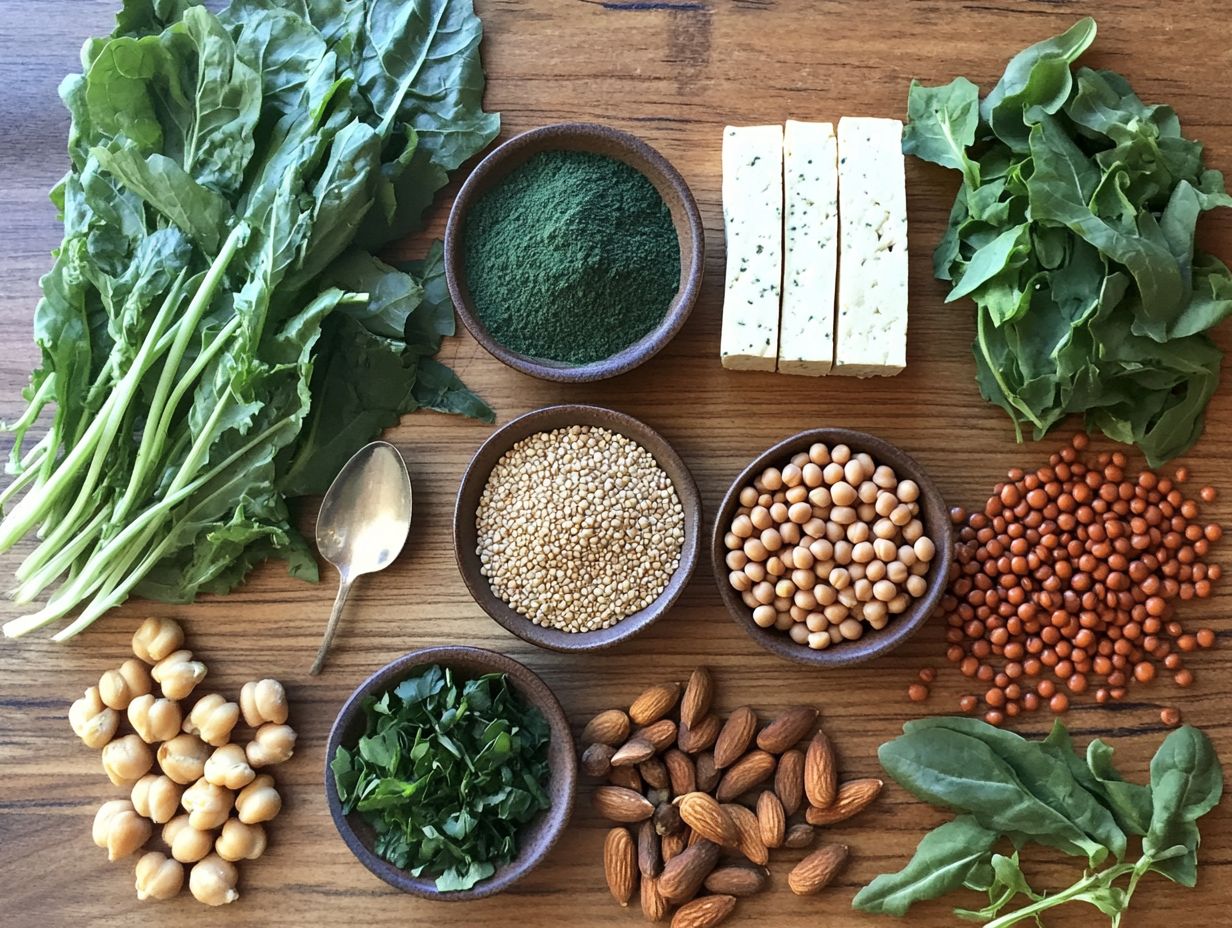
Nuts and seeds are excellent sources of vegan protein, providing healthy fats, fiber, and a wide variety of vitamins and minerals. Almonds, chia seeds, flaxseeds, and pumpkin seeds are particularly high in protein and promote heart health, contributing to overall well-being.
These nutrient-dense foods can easily be incorporated into smoothies and salads or enjoyed alone as snacks, helping to meet protein intake goals while adding variety to a vegan diet.
Plus these commonly consumed options, walnuts are rich in omega-3 fatty acids, which support brain health, while sunflower seeds are high in vitamin E, an antioxidant that helps prevent cell damage.
Incorporating these foods into meals is simple; for instance, sunflower seeds can enhance a bowl of oatmeal, and walnuts can be ground into a delicious pesto sauce.
For a nutritious snack, consider making energy bites using a mixture of nuts, seeds, and dried fruits. These versatile ingredients can elevate the flavor and protein content of both savory and sweet dishes.
3. Grains
Grains are a significant source of vegan protein, particularly whole grains, along with carbohydrates and fiber. Foods such as quinoa, brown rice, and oats not only help meet protein intake recommendations but also serve as important sources of sustained energy and support digestive health.
Incorporating a variety of grains into a vegan diet can enhance its nutrient profile and promote overall well-being. Other grains, such as barley, farro, and millet, boast impressive protein profiles and offer different nutritional benefits.
For instance, barley is rich in beta-glucan, a soluble fiber that aids in cholesterol control, making it a heart-healthy option. Including these grains in the diet can be both easy and enjoyable; consider swapping regular pasta for whole grain alternatives or using farro as a base for a vegetable salad.
These grains not only provide protein from plants but also supply a range of essential vitamins and minerals necessary for metabolism and balanced nutrition.
4. Soy Products
Soy products such as tofu, tempeh, and edamame are among the most concentrated sources of vegan protein, providing all essential amino acids in adequate amounts. Tofu is a highly versatile food that can be utilized across various cuisines and cooking methods. Tempeh, while used similarly to tofu, has a nuttier flavor and offers additional health benefits due to its fermentation process. Including soy products in a vegan diet can significantly aid in achieving sufficient protein intake and overall dietary adequacy.
Like all whole food plant proteins, these soy products are relatively high in fiber, vitamins, and minerals, which contribute to daily micronutrient needs. Their fiber content promotes good digestive health, while the micronutrients support immune function. Soy products boast a high protein content, with approximately 18-20 grams of protein per serving. For example, 4 ounces of tofu (roughly half the size of a deck of cards) contains 17 grams of protein and 80 calories, though this can vary significantly depending on preparation. Similarly, 4 ounces of tempeh provides 21 grams of protein and 190 calories, while 1 cup of shelled edamame has 17 grams of protein and 189 calories.
In terms of preparation, tofu can be:
- sautéed in curries
- stir-fried with vegetables
- grilled on skewers
- blended into smoothies
Tempeh can be:
- marinated and sautéed
- grilled
It is commonly used in stir-fries and sandwiches. Edamame can be boiled or steamed, serving as a nutritious snack or an excellent addition to salads and stir-fries. Nutritional yeast or tamari sauce can be easily incorporated for added flavor.
There are many creative ways to include these foods in your meals. For instance, blending silken tofu into sauces and salad dressings creates a creamy consistency without dairy. Renowned pastry chef Flo Braker uses silken tofu to make rich, mousse-like vegan desserts. Additionally, mashed edamame mixed with beans and spices can be used to prepare delicious vegan burgers. Enhancing the flavor and nutritional value can be achieved by adding sesame seeds, avocado, peanuts, or scallions.
Tofu’s versatility allows it to fit into both savory and sweet dishes. Silken tofu adds creaminess to dressings or sauces and can also replace dairy in desserts. Great cooking methods for tofu include grilling, sautéing, stir-frying, and baking. Tempeh can be marinated, sautéed, or grilled, and is perfect for stir-fries and sandwiches. Edamame can be boiled or steamed and quickly incorporated into homemade dressings or salads.
What Are the Risks of Not Getting Enough Protein on a Vegan Diet?
The risks associated with insufficient protein intake on a vegan diet can lead to protein deficiency, which may cause muscle wasting, impaired immune function, and delayed healing after injury or illness.
This issue is particularly serious for individuals with higher protein needs, such as vegan athletes, who must closely monitor their protein intake to ensure they consume enough protein-rich foods. They should also be aware of the health issues linked to protein deficiency to maintain proper body function on a vegan diet.
The health risks of inadequate protein are not confined to physical performance; they can also affect cognitive performance and mood. Those following a vegan diet should identify clear sources of plant protein, such as:
- Legumes
- Nuts
- Seeds
- Whole grains (a great source of essential amino acids)
Children, pregnant individuals, and the elderly are at greater risk for the adverse effects of insufficient protein intake, highlighting the need for adequate protein consumption patterns.
To mitigate the risk of protein deficiency, individuals can consider using protein supplements and fortified foods or ensure they include a variety of carefully planned protein-rich foods to meet their balanced nutrient requirements.
How to Ensure Adequate Protein Intake on a Vegan Diet?
Ensuring sufficient protein intake on a vegan diet requires careful monitoring of dietary choices and adherence to nutrition guidelines. This process may involve tracking protein consumption patterns, understanding the protein content of various foods, and seeking advice from a registered dietitian who specializes in the nutritional needs of individuals following a vegan diet. Vegan athletes, in particular, should be mindful of their protein needs to support performance and recovery.
By being mindful of nutrient absorption and prioritizing protein-rich foods, one can support the bodily functions necessary for health and well-being while adhering to a vegan lifestyle. Incorporating whole-food plant-based sources ensures protein adequacy and addresses potential protein myths associated with veganism.
1. Monitor Protein Intake
Monitoring protein intake is a crucial aspect of following a vegan diet to ensure adequate protein consumption and support overall health. Understanding protein requirements and protein intake adequacy is vital for maintaining optimal health.
Food diaries, apps, and nutritional databases can be used to track protein intake and identify food sources that contribute to total protein consumption. By regularly reviewing their intake patterns, individuals can adjust their food choices to increase protein levels and reduce the risk of deficiency. This is particularly important for those following vegetarian diets or vegan protein guidelines.
Utilizing resources such as meal-planning websites and protein calculators significantly enhances the tracking process. These tools not only simplify achieving nutritional goals but also serve as motivational aids by demonstrating progress over time.
Understanding the importance of nutrient timing, such as consuming protein after exercise, can also provide valuable insights into maximizing the benefits of dietary practices. Therefore, tracking protein intake is vital, as it directly affects energy levels, muscle health, and overall well-being, particularly for those adhering to a plant-based diet. Studies, such as those published in the Journal of the Academy of Nutrition and Dietetics, emphasize the health benefits of timely protein consumption.
2. Consult a Registered Dietitian
As part of a comprehensive treatment plan, registered dietitians offer personalized nutrition recommendations and guidelines for protein intake tailored to individuals following a vegan diet, taking into account their personal health goals and lifestyle factors. They can help ensure dietary adequacy, address any potential nutritional gaps, and assist individuals in developing customized meal planning strategies that focus on high-quality protein sources, such as plant-based proteins and whole foods.
Their role is especially important for those with specific dietary restrictions or medical conditions. With their expertise in plant-based diets, registered dietitians can optimize the intake of essential nutrients such as iron, calcium, vitamin B12, and zinc, which are crucial for preventing protein-related diseases.
Individuals can find registered dietitians who specialize in vegan nutrition by searching professional organization directories or local health resources, ensuring their credentials and experience include expertise in plant-based nutrition consulting.
The support they provide extends beyond meal planning; they can help individuals understand food labels, recommend evidence-based nutritional supplements, and offer behavioral strategies to maintain motivation and overcome challenges.
Their guidance can contribute to a balanced and enjoyable vegan lifestyle that enhances overall well-being.
